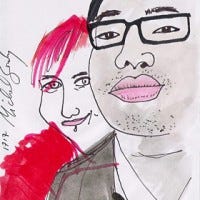"Without strong first-party titles -- like Mario with Nintendo or Halo on Xbox -- it's really difficult to grow a platform," reasons Gree SVP Eiji Araki in this interview with Gamasutra.

When most think about the companies behind emerging game platforms like mobile and social networks, it's rare to associate those companies with leading first-party games -- Apple isn't dominating the App Store with its only iOS game Texas Hold'Em, and you don't look at Facebook as a developer of popular social games. For Gree, the Tokyo-based firm running one of the largest mobile social gaming networks in the world, though, creating first-party titles that stand out is key, just like you would expect on game consoles and handhelds. Eiji Araki, senior vice president for Gree International's social games division, tells Gamasutra, "Without strong first-party titles -- like Mario with Nintendo or Halo on Xbox -- it's really difficult to grow a platform." Gree's service adds social features like invites, multiplayer, and more to mobile games. It also allows developers to sell virtual goods, which Gree has made a killing on; it's expected to generate ¥160-170 billion ($2.1-$2.5 billion) in sales for its fiscal year ending this June, much of that from taking a percentage on microtransactions. Araki would know what it takes to grow a platform and to keep those virtual goods revenues rising. He joined Gree in 2005, before the company's self-titled Japanese social network exploded in popularity, and helped expand the service to an astounding 190 million registered users. He's now helping expand Gree's North American presence with a new branch and development house in San Francisco. The studio is a mix of veterans from Gree's Japanese operations, workers from OpenFeint (the American cross-platform mobile social game network Gree acquired last April for $104 million), and new employees. Although Gree already has a number of internal studios, and not to mention more than 20,000 external developer partners around the world, Araki said that having a North American team is critical: "We have to have a U.S. studio to hire U.S. talent that understands the U.S. audience, so we can be successful in the U.S. market." Today that studio releases its first App Store title, Zombie Jombie, an addictive RPG featuring cutesy undead characters, collectible cards, and plenty of social features that allow gamers to play with or against their friends. It's designed to appeal to Western audiences, with Garbage Pail Kids-style artwork and humor.  Araki says it was important for Gree to introduce itself to the States with a Western game, even though he sees many common elements between Japanese and U.S. audiences: "I think very fundamental design or social design is universal. [Players] want to connect to more friends, or to communicate with friends more easily, or to be stronger players, or to help other players. "At the same time, characters, visual art styles, and stories, and some other specific genres like first-person shooters, those things are more cultural than other factors. I believe with the fundamental motivations and fundamental game designs, we can utilize what we've learned in Japan, and then for visuals or characters, that sort of thing, you have to work with local talent." "That's why for this Zombie Jombie, we brought the game design from Japan, Japanese social games," Araki adds. "For characters, art style, copy writing, all of them are done by local hires. Our director is a local hire." As a platform holder, Gree is under extra pressure to make this first release from the San Francisco group stand out. Araki notes, "The U.S. studio's strategy or mission is [to] showcase of our platform." Instead of outshining third-party games and dominating it platform -- as Nintendo has been accused of with its first-party titles -- Gree wants to show developers what can be done with its service. "From a platform perspective, having strong first-party games is really helpful for attracting third-party developers, and also for testing our platform," says the executive. While the company already has its Gree service running in Japan, and OpenFeint in the West (which Zombie Jombie is built on), it intends to launch a new global mobile social gaming network, Gree Platform, in the second quarter of 2012. That's why it's working to establish a firm foothold in the U.S., putting out releases from the San Francisco team, staffing up that group to double its size, making efforts to attract local development partners, securing exclusives from big franchises like Assassin's Creed, and even planning acquisitions, all in preparation for Gree Platform's debut. Its also racing against DeNA, another huge Japanese mobile social gaming network operator, which is looking to grow in the West and has been snatching up North American studios, too. Similar to Gree's OpenFeint acquisition, DeNA bought San Francisco-based mobile social gaming network Ngmoco for $400 million in 2010. Gree intends to grow fast in the U.S., but that's nothing new for the company or Araki -- he was the sixth employee there, and its headcount has since grown to some 1,000 workers, most of which joined in just the last year. Araki says Gree has handled this rapid scaling in stride, "We spent a lot of time in the past two to three years to build a strong foundation to the company. I don't mean like an economics foundation, more like a team culture operation. In terms of the quality of the culture or the quality of the operation, we have improved." Pointing to the company's impressive revenue and profits, he adds, "Last year, we expanded from 200 people to 1,000 people. That's huge growth in terms of the team size, but you can see our revenue also grew. I think that is saying we can expand, while keeping the good quality of the team."
Araki says it was important for Gree to introduce itself to the States with a Western game, even though he sees many common elements between Japanese and U.S. audiences: "I think very fundamental design or social design is universal. [Players] want to connect to more friends, or to communicate with friends more easily, or to be stronger players, or to help other players. "At the same time, characters, visual art styles, and stories, and some other specific genres like first-person shooters, those things are more cultural than other factors. I believe with the fundamental motivations and fundamental game designs, we can utilize what we've learned in Japan, and then for visuals or characters, that sort of thing, you have to work with local talent." "That's why for this Zombie Jombie, we brought the game design from Japan, Japanese social games," Araki adds. "For characters, art style, copy writing, all of them are done by local hires. Our director is a local hire." As a platform holder, Gree is under extra pressure to make this first release from the San Francisco group stand out. Araki notes, "The U.S. studio's strategy or mission is [to] showcase of our platform." Instead of outshining third-party games and dominating it platform -- as Nintendo has been accused of with its first-party titles -- Gree wants to show developers what can be done with its service. "From a platform perspective, having strong first-party games is really helpful for attracting third-party developers, and also for testing our platform," says the executive. While the company already has its Gree service running in Japan, and OpenFeint in the West (which Zombie Jombie is built on), it intends to launch a new global mobile social gaming network, Gree Platform, in the second quarter of 2012. That's why it's working to establish a firm foothold in the U.S., putting out releases from the San Francisco team, staffing up that group to double its size, making efforts to attract local development partners, securing exclusives from big franchises like Assassin's Creed, and even planning acquisitions, all in preparation for Gree Platform's debut. Its also racing against DeNA, another huge Japanese mobile social gaming network operator, which is looking to grow in the West and has been snatching up North American studios, too. Similar to Gree's OpenFeint acquisition, DeNA bought San Francisco-based mobile social gaming network Ngmoco for $400 million in 2010. Gree intends to grow fast in the U.S., but that's nothing new for the company or Araki -- he was the sixth employee there, and its headcount has since grown to some 1,000 workers, most of which joined in just the last year. Araki says Gree has handled this rapid scaling in stride, "We spent a lot of time in the past two to three years to build a strong foundation to the company. I don't mean like an economics foundation, more like a team culture operation. In terms of the quality of the culture or the quality of the operation, we have improved." Pointing to the company's impressive revenue and profits, he adds, "Last year, we expanded from 200 people to 1,000 people. That's huge growth in terms of the team size, but you can see our revenue also grew. I think that is saying we can expand, while keeping the good quality of the team."
About the Author(s)
You May Also Like









